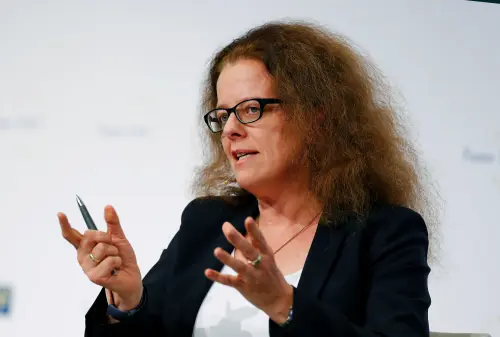In Frankfurt on Wednesday, top policymakers of the European Central Bank outlined the upcoming policy debate, offering differing views on inflation risks and the extent to which the bank is still restraining the economy.
The ECB has reduced interest rates five times since last June, sparking increasing debate among policymakers regarding the necessity of further rate cuts when inflation remains slightly high and economic growth is minimal.
Isabel Schnabel, an outspoken policy hawk at the ECB, suggested initiating a discussion on pausing rate cuts as the 2.75% deposit rate is no longer significantly restrictive on the economy. She indicated in the Financial Times, "We are getting closer to the point where we may have to pause or halt our rate cuts. I'm not saying that we're there yet. But we have to start the discussion."
Schnabel elaborated that recent removal of the reference to maintaining policy as "restrictive" has escalated the debate on defining the endpoint of restrictions, a challenge that is subjective in nature.
Contrarily, Italy's central bank chief emphasized that economic growth is weaker than expected and the anticipated consumer-led recovery has not materialized. These remarks suggest that current monetary policy may be unnecessarily restrictive since inflation is nearing its target and domestic demand shows feebleness.
Both policymakers, significant voices within the 26-member Governing Council, held diverging opinions on the future trajectory of inflation. Schnabel warned of inflation risks posed by energy prices potentially delaying the return to the 2% target, stating, "I see risks to our inflation outlook as somewhat skewed to the upside."
Panetta, however, indicated a different stance, stating, "The available indicators seem to suggest that the predominant risk remains inflation falling below 2% over the medium term."
The ECB is scheduled to convene on March 6, with an imminent rate cut fully anticipated. Nevertheless, the subsequent step remains up for debate, with market expectations and commentary from policymakers indicating that a rate cut on April 17 is not assured.
